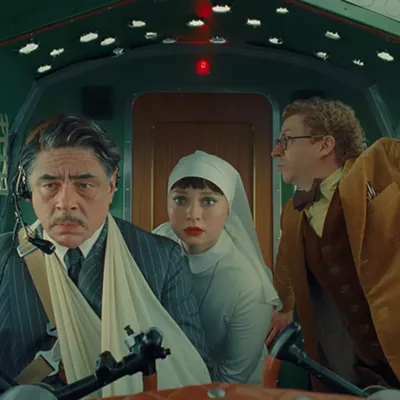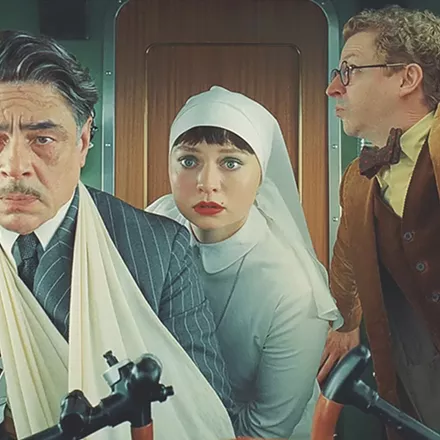Have you ever seen a movie with a friend, then afterward had an argument about it that almost led to fisticuffs?
There I was, with a fellow critic, one of us happy, one close to angry about frittering away 90 minutes of his life (the monetary and tertiary compensation of being a film critic notwithstanding).
“It was full of anachronisms,” said one of us. “That music wouldn’t have been playing in 1963.”
“The music worked perfectly,” said the other. “It set the mood and helped tell the story. So what if ‘A Teenager in Love’ and ‘Walk Don’t Run’ and ‘Rebel Rouser’ weren’t from that year?”
“There was too much repetition in flashbacks. It was just a gimmick to stretch out the film,” said the one.
“It was a really clever nod to Rashomon, showing the same story from different angles, being told by different people,” said the critic who knew the meaning of homage.
“There was too much voiceover instead of the actors actually talking to each other,” said the grumpy critic, his voice getting a little louder now.
“The whole point of it was the characters couldn’t figure out how to speak to each other, so their story was told through their thoughts,” countered the sage.
Never mind who the other guy was, I thought this was one of the most charming films I’ve seen in a long while, packed with characters you could choose to root for or despise (but then maybe grow to understand) and, in my case, to identify with.
Flipped takes place first, briefly, in 1957, then shoots up to and stays in 1963. It’s set in everyday American suburbia, telling a story of two kids — junior high schoolers, a boy and a girl — who have reached that age where everything about them confuses the other, and awkwardness is the norm.
Bryce (newcomer Callan McAuliffe) and Juli (Madeline Carroll, who played Kevin Costner’s precocious daughter in Swing Vote) have been fascinated by each other since second grade, when his family moved in across the street from hers — she thinks he’s dreamy, and she wants her first kiss to be from him. He can’t believe how forward and nervy she is, and makes him want to run away.
It’s the developing story of their puppy love, but it’s also a study of the perfectly cast ensemble around them: Juli’s wise dreamer of a dad (Aidan Quinn), Bryce’s short-tempered — possibly alcoholic — ever-angry dad (Anthony Edwards), their two much=stronger moms (Rebecca De Mornay, Penelope Ann Miller), cute twin brothers here, cute sister there, and a truly wise grandfather (John Mahoney) who knows when to butt in.
Director Rob Reiner (who hasn’t made a really satisfying film since 1995’s The American President) has taken a deceptively simple story and placed it within a complicated construct, and he’s done it in the most winning way. The trials and tribulations of young love in a junior high school setting, as well as the often funny but sometimes sad — even shocking — arena of family life are told in a straight manner. But then, a few minutes or even a half hour later, the same things might be told again, seen from a different character’s perspective, literally shot from a different angle, and the story or event takes on a whole new meaning.
It’s funny and sad and cute and wistful, and it’s a real return to form for Reiner. That shouldn’t be a surprise. We smart critics knew the director of The Princess Bride and This Is Spinal Tap still had some good stuff up his sleeve.





















